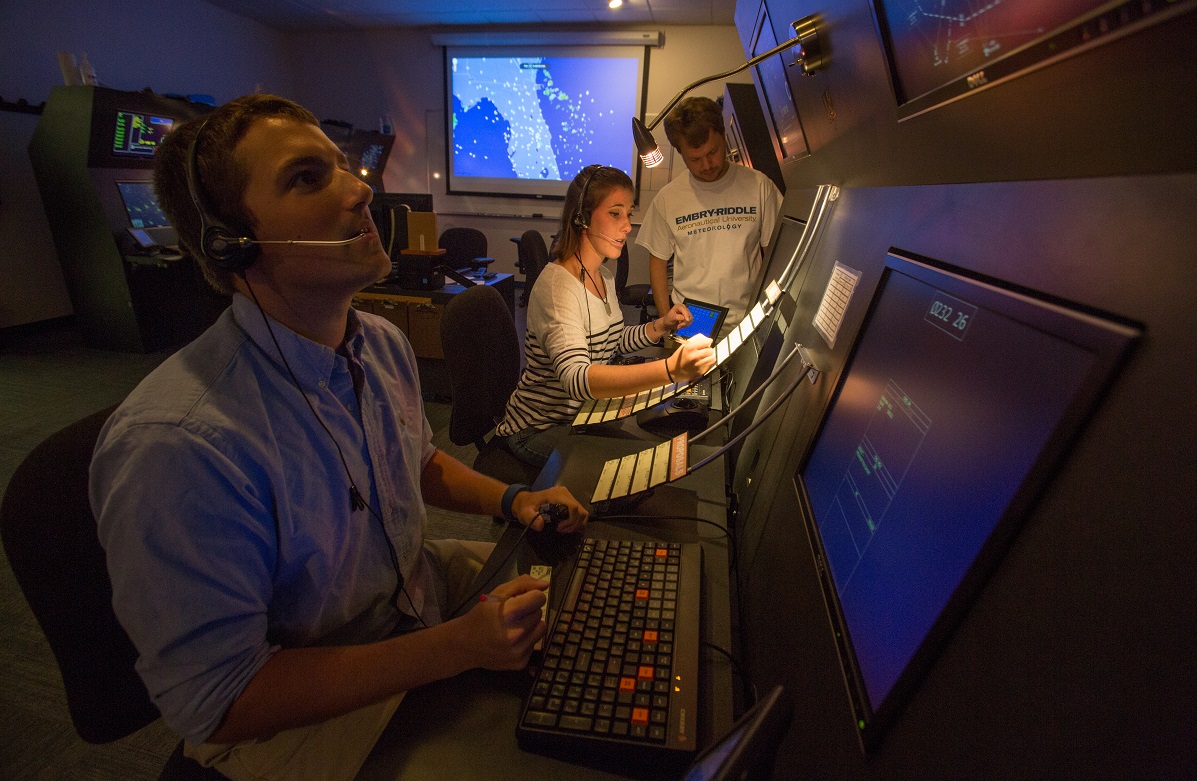Centered on Innovation: SOAR Center Will Focus on Technical Training for Aviation Pros

Embry-Riddle Aeronautical University is growing and developing its research capabilities through several centers, many of which are nationally and internationally recognized.
Embry-Riddle Aeronautical University is growing and developing its research capabilities through several centers, many of which are nationally and internationally recognized.
The newest research center to join the university is the Air Transportation Center of Excellence for Technical Training and Human Performance, nicknamed COE SOAR (Center of Excellence Solutions for Operation Aviation Research).
The Federal Aviation Administration (FAA) is expected to invest $5 million over the next five years in this public-private partnership, which includes a team of top-tier academic research institutions and more than 20 industry partners.
The Embry-Riddle-led team is conducting research to transform training for the FAA’s 22,000-employee air traffic organization workforce. Embry-Riddle will lead research and development on technical training for air traffic controllers, aviation safety inspectors, engineers, pilots and technicians, with a focus on human performance. Other research centers at Embry-Riddle include:
Eagle Flight Research Center (EFRC)
The university’s aerospace/ aviation research and development facility, EFRC conducts experimental flight testing, aircraft modifications for FAA certification, and design and testing of aircraft and unmanned aerial systems.
Robertson Aviation Safety Center (RASC)
As a professional development, outreach and consulting organization, RASC offers opportunities for advanced professional training, consulting on safety projects with corporate partners and applied research activities.
Center for Space and Atmospheric Research (CSAR)
This center explores the fundamental physics of planetary atmospheres and space environments.
Cybersecurity and Assured Systems Engineering Center (CyBASE)
CyBASE is composed of Embry-Riddle faculty members who conduct research in cybersecurity associated with critical infrastructures and assured systems, such as aviation and aerospace systems. It’s also involved in projects that include embedded systems security, aviation and aerospace cybersecurity, digital forensics and cloud computing security.
Center for Wildlife and Aviation
By combining Embry-Riddle’s resources with those of other institutions, including the FAA, the U.S. Department of Agriculture (Wildlife Services), the Department of Defense (Air Force and Navy) and the Bird Strike International Committee, the center seeks to collect, maintain and disseminate relevant bird strike data and bird strike research; to promote wildlife mitigation training, policies and plans; and to bridge the gap between the scientific community and stakeholders. Alliance for System Safety of UAS Through Research Excellence (ASSURE) Embry-Riddle is a founding member of the 21-member coalition of research universities dedicated to unmanned aerial systems safety, known as ASSURE.
Next Generation Air Transportation System (NEXTGEN) Facility
NextGen is an FAA initiative in which government, industry and academia work together to transform and modernize the nation’s air traffic control system, shifting from ground-based radar to satellite-based technology. The FAA has contracted Embry- Riddle to operate its Florida NextGen Test Bed facility, located in Daytona Beach, Fla.
Southeast Association for Research In Astronomy (SARA)
This 12-university consortium led by Embry-Riddle operates 1-meter class telescopes for astronomical research and education at Kitt Peak National Observatory in Arizona, Cerro Tololo Inter-American Observatory in Chile and the Canary Islands off the African coast. SARA telescopes are accessible over the internet in real time.

 Kelly Pratt
Kelly Pratt